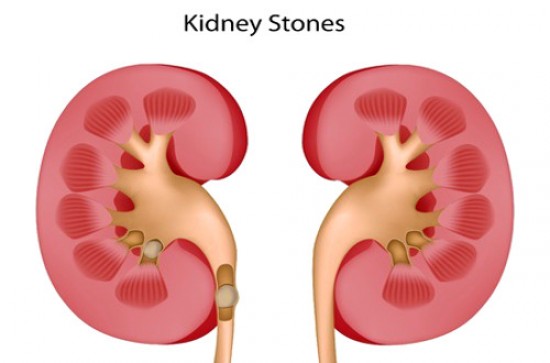Kidney stones are comprised of a compound called calcium oxalate, the result of an accumulation of dissolved minerals on the inner lining of your kidneys.
These deposits can grow to the size of a golf ball while maintaining a sharp, crystalline structure.
While your kidney stones may be small and pass unnoticed out of the urinary tract, they may also cause extreme pain upon exiting.
According to the National Kidney Foundation, one in ten Americans will have a kidney stone during his or her lifetime. In fact, more than half a million people visit emergency rooms for kidney stone problems annually.
If you have digestive problems, diabetes, other health hazards, or a family history of kidney stones, you are at a higher risk of developing kidney stones at some point in your life.
How do you know if you have a kidney stone?
Kidney stone pain is excruciating. If you're experiencing shooting pains in your back and your lower abdominal and if you have pain while urinating you shouldn't hesitate to make an appointment with your physician.
It's important to note if you're experiencing all this pain accompanied with vomiting, see blood in your urine and have a fever, you should go to the nearest ER immediately.
Assistant Professor of Surgery in Urology at Duke University, Dr. Charles Scales, MD, discusses the symptoms of kidney stones, why kidney stones occur and what you need to do if you have kidney stones.

Painful Truth About Kidney Stones
Guest
: Charles D. Scales Jr., MD, MSHS
From the Show: Staying Well
Summary: While your kidney stones may be small and pass unnoticed via the urinary tract, they may also cause extreme pain.
Air Date: 6/23/14
Duration: 10
Host: Melanie Cole, MS
Tagged under




 Dr. Charles Scales Jr., MD, is a urologist in Durham, North Carolina.
Dr. Charles Scales Jr., MD, is a urologist in Durham, North Carolina.